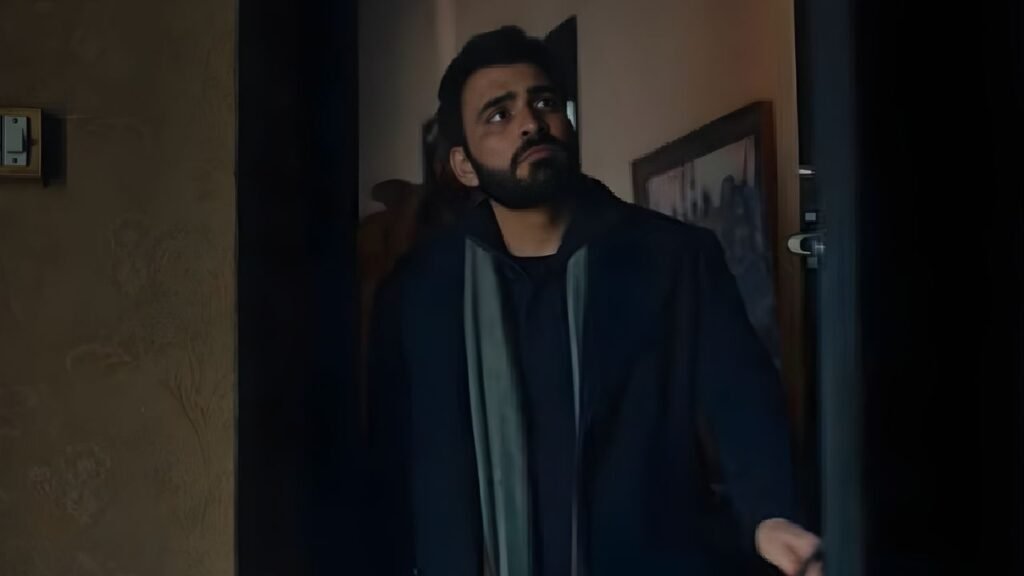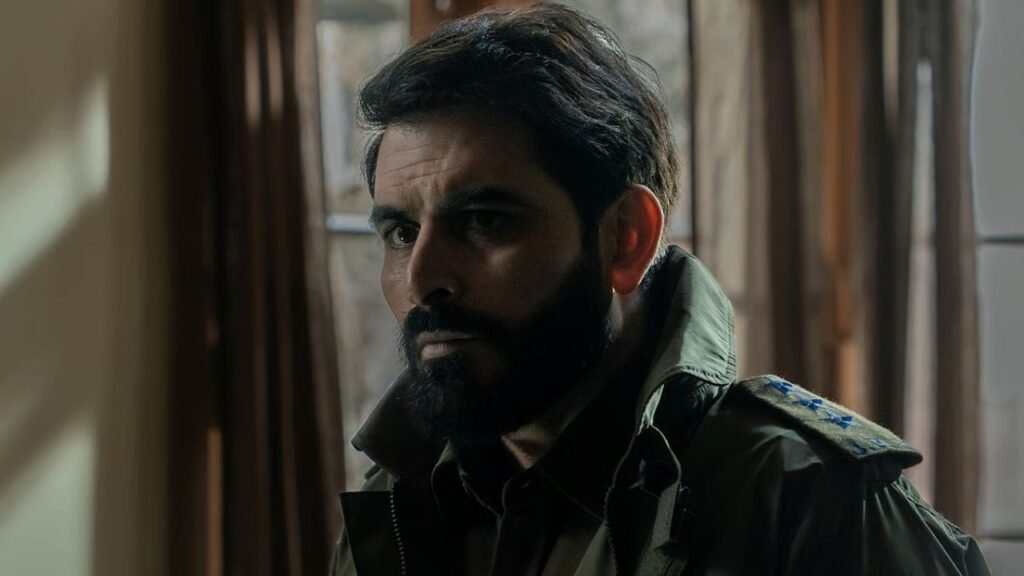Aditya Dhar’s Baramulla is not your conventional horror film — it’s a haunting, emotionally charged exploration of Kashmir’s tragic history, layered with psychological and political subtext. Starring Manav Kaul and Bhasha Sumbli, the film blurs the line between the living and the dead, reality and trauma, personal guilt and collective pain.
A Story of Loss, Fear, and Redemption
Set in 2016, Baramulla follows DSP Ridwaan Shafi Sayyed (Manav Kaul), a cop struggling with PTSD after a tragic hostage situation in Reasi that left him and his daughter Noorie scarred. When a child goes missing during a magic show, Ridwaan begins a desperate investigation — one that leads him into a labyrinth of terror, superstition, and the supernatural.
As more disappearances shake the town, Ridwaan and his family — wife Gulnaar (Bhasha Sumbli), and children Noorie and Ayaan — begin to sense an eerie presence in their new home. The haunting soon turns personal when they realize the spirits belong to a Kashmiri Pandit family who once lived there — victims of brutal atrocities from the 1990s.
Through this collision of the seen and the unseen, Dhar and co-director Aditya Suhas Jambhale deliver a deeply symbolic tale about trauma, communal scars, and redemption. The supernatural becomes a metaphor for memory — refusing to fade, refusing to forgive.

Performances That Elevate the Narrative
Manav Kaul delivers one of his most powerful performances yet — restrained, pained, and utterly convincing as a man haunted by his past and his surroundings. Bhasha Sumbli shines as Gulnaar, bringing both fragility and fierce emotion to her role. Their chemistry grounds the film’s spiritual and political commentary in genuine human feeling.
Aditya Dhar’s Vision: Myth Meets Reality
What makes Baramulla stand apart is its fusion of folklore and fact. Dhar, himself a Kashmiri Pandit, channels lived experience into a film that’s as much about ghosts as it is about the ghosts of history. The film navigates questions of identity, belonging, and loss with sensitivity — while never losing its horror edge.
Cinematographer Tapan Basu paints Kashmir with chilling beauty — snow-covered silence, flickering lamps, and mist-covered homes that hide more than they reveal. The background score complements the narrative perfectly, oscillating between melancholy and menace.
A Layered Exploration of Kashmir’s Psyche
Beyond the scares, Baramulla examines the sociopolitical tensions that define modern Kashmir. The film portrays how militancy, indoctrination, and radicalism corrupt innocence — embodied by Noorie’s transformation from a traumatised child to a brainwashed teen calling her father a “gaddar.”
In Dhar’s vision, every character is a victim — of ideology, memory, or fate. And through its mix of realism and myth, the film reminds viewers that horror doesn’t always come from the supernatural; sometimes, it’s the human world that’s most terrifying.
Jay-Ho Updates
Baramulla is bold, haunting, and emotionally intelligent — a rare Indian horror film that engages the mind as much as the heart. With stellar performances, layered writing, and striking visuals, it stands as one of 2025’s most compelling cinematic experiences.






















